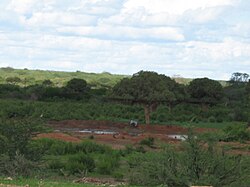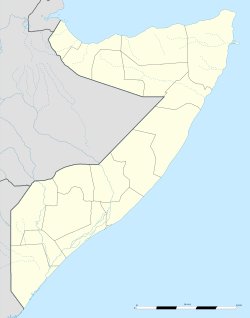Fafahdun Faafaxdhuun | |
|---|---|
Town | |
 A pond in Fafahdun. | |
| Coordinates: 2°13′0″N41°37′0″E / 2.21667°N 41.61667°E | |
| Country | |
| Region | Gedo |
| Government | |
| • Occupation | |
| Time zone | UTC+3 (EAT) |
Fafahdun (Somali : Faafaxdhuun) is a town in the southwestern Gedo region of Somalia in the district of Bardera.
